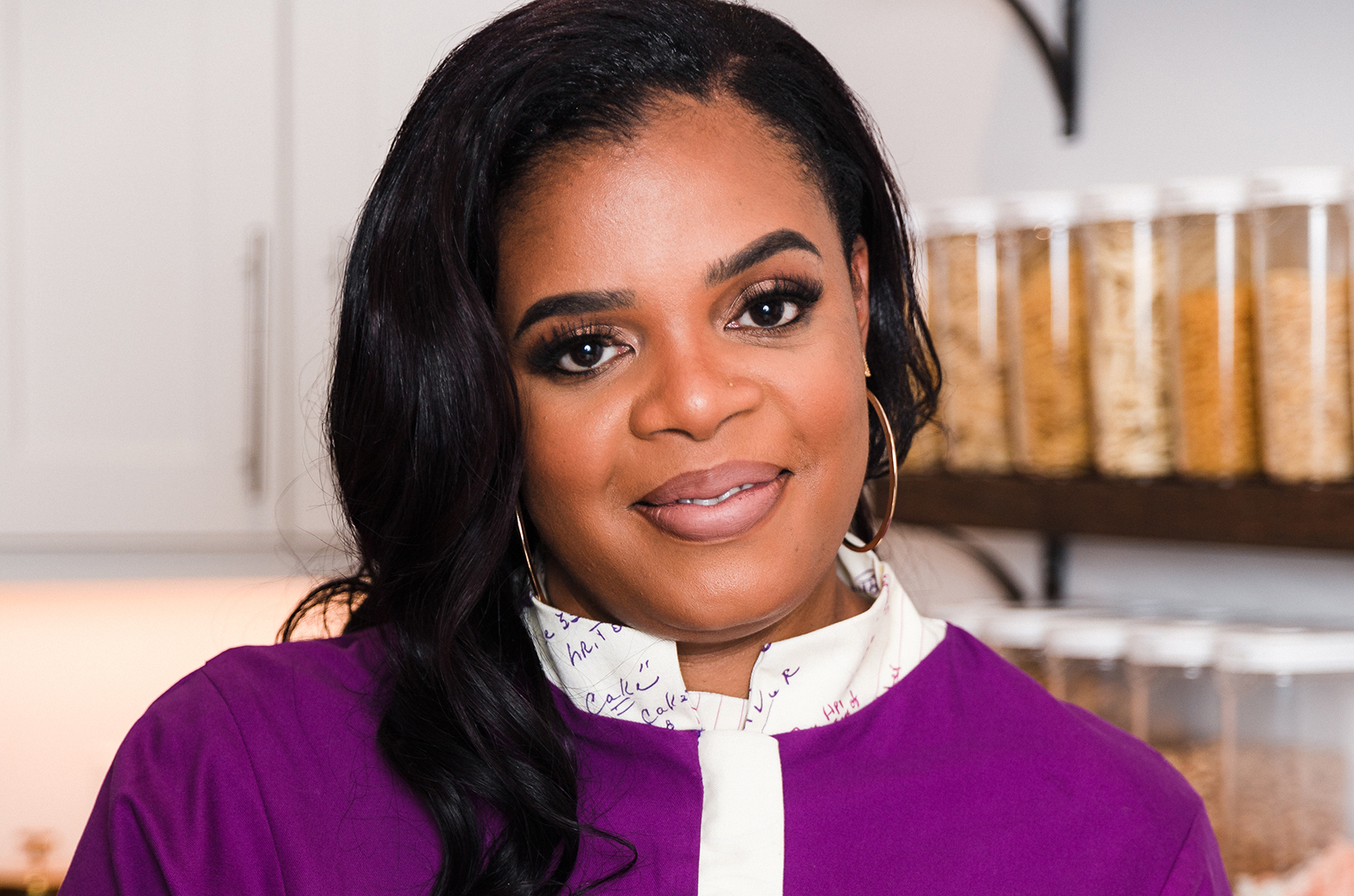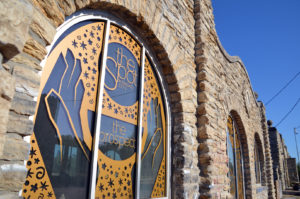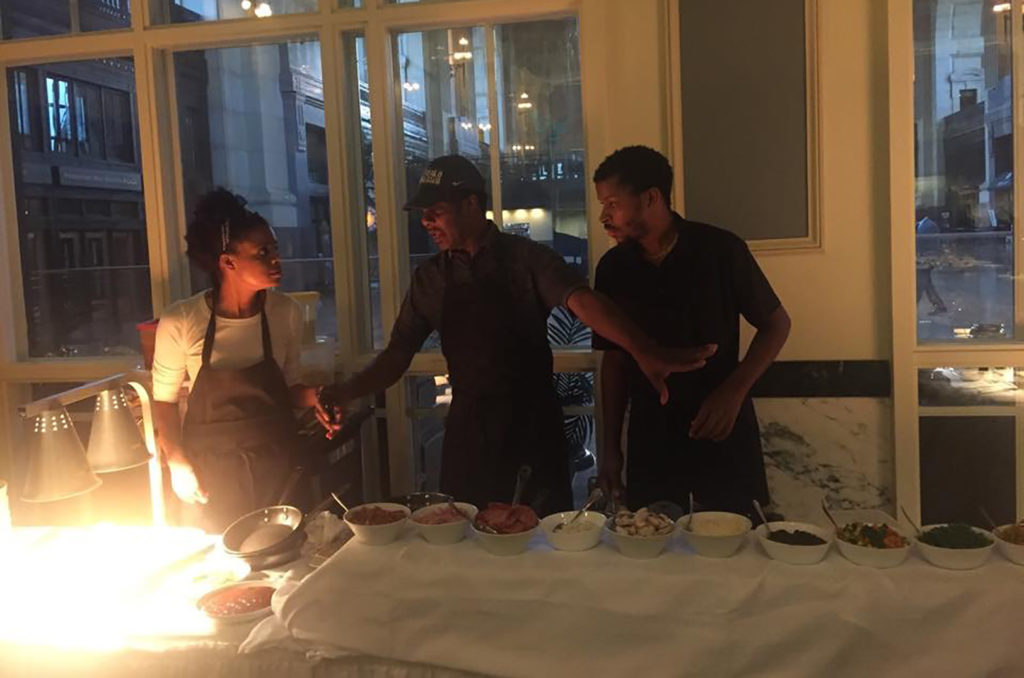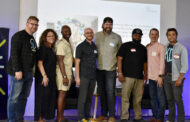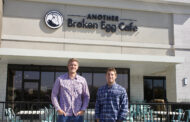Editor’s note: This story is part of a series from Startland News highlighting entrepreneurs, businesses, and creators leading revitalization and redevelopment efforts in and around the historic 18th and Vine Jazz District. Click here to read additional stories from this series.
Renowned Kansas City chef Shanita McAfee-Bryant plans to open a “for purpose” urban eatery later this year in the south building at the 2000 Vine Street redevelopment — a budding home for culinary and creative efforts, along with KC’s first Black-owned brewery.
The Prospect KC Urban Eatery will function as a social enterprise business for The Prospect KC, McAfee-Bryant’s nonprofit that supports disenfranchised communities in Kansas City.
“What we wanted to do with The Prospect is create an ecosystem that revolves around food access, nutritional literacy and workforce development,” McAfee-Bryant said. “During the pandemic especially, the thing I noticed the most is that people are really struggling in those three areas.”
Click here to read more about the effort to bring new life to the historic 18th and Vine Jazz District through a new development at 2000 Vine.
McAfee-Bryant — or simply “Chef Shanita” — has been doing culinary work for more than 20 years, and notably won a 2014 episode of “Cutthroat Kitchen,” a Food network competition show.
She attended the Culinary Institute at Johnson County Community College and opened Magnolia’s Southern Cuisine, which began as a catering business before becoming a restaurant, then eventually a food truck.
In 2018, her father, Mark McAfee Sr., died unexpectedly. Losing her biggest supporter — he functioned like a business partner, McAfee-Bryant said — led her to deeply re-evaluate her career, and other aspects of her life.
“When I thought about my success, I just thought about the support that I got from my dad, and just how monumental that was,” McAfee-Bryant said. “Being a teen mom, a single mom, going through phases of your work life where you are trying to make ends meet, [I was] in the same position as many of the people who I serve in various ways.”
“The consistent thing was, I always had my dad there as that support factor,” she continued. “Whether it’s making an introduction, whether it’s working, whether it’s going to Restaurant Depot, driving the food truck — it didn’t matter what it was, whatever was necessary, he was going to do, or find somebody to do for me.”
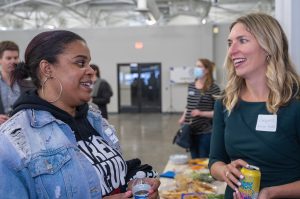
Chef Shanita McAfee-Bryant, The Prospect KC, and Jacqueline Erickson Russell, Social Impact Advising Group, talk in May during a launch event for the LaunchKC Social Venture Studio; photo by Estuardo Garcia
Although she had been introduced to the social enterprise concept several years earlier in Seattle, it wasn’t until 2019 that McAfee-Bryant began creating The Prospect KC.
The social enterprise model means that the restaurant will technically be for-profit, but that money will then be invested into the nonprofit, and therefore, the community.
Click here to read more about the LaunchKC Social Venture Studio, of which The Prospect KC is an inaugural cohort member.
“We definitely want The Prospect [Urban Eatery] to be profitable, but not for the purpose of me buying a lake house or a yacht,” McAfee-Bryant said. “It’s really for the purpose of reinvesting right back into our community and the people who we serve. The point of every cup of coffee that people drink, every croissant, every donut, is for the betterment of the lives of the people in the community.”
Stirring the pot
Though the urban eatery is yet to open, the nonprofit’s community programs and initiatives have already begun, albeit many of them virtually as a result of the pandemic.
The Prospect KC offers a 16-week job training program, where “prospects” receive on-the-job culinary training, in addition to what McAfee-Bryant called “power skills,” such as self-confidence, financial literacy, and communication.
“It teaches you a lot about yourself,” she said. “I learned more about myself in the kitchen than I’ve ever learned in therapy, because you’re in an environment where there are other people, but the only person who you’re really competing against is yourself.”
After completing the program, participants begin an internship with The Prospect or an externship with an employment partner. In either case, they are guaranteed a minimum of one year of employment, barring unforeseen or extreme circumstances.
The Prospect’s kitchen confidence workshops teach people of all ages nutritional literacy, something McAfee-Bryant said was increasingly important.
“The way nutritional literacy comes in is teaching people how food affects their body and really working within this particular community to kind of repair that relationship,” she said. “They’ve been surviving on processed or convenience food for several generations. And what we’ve noticed during the pandemic [is] the people who had the skills are passing on.”
She pointed to how COVID-19 disproportionately impacted people with underlying health conditions and chronic illnesses, and referenced the belief in non-traditional medicine that food can serve as medicine for your body.
Stir the Pot brings people together around a home-cooked meal to promote community action, primarily on the issue of food access.
Food access is an especially significant topic in the third district of Kansas City, which encompasses most of the East Side and includes limited options for healthy, fresh food, McAfee-Bryant said.
“I think that if the people in this community had a more united voice about what they want in terms of convenience stores, grocery stores, and food availability, then that would be taken more seriously,” McAfee-Bryant said. “So it’s really just about us connecting the community to the people that they need to be connected to, and giving them the tools to be self-advocates.”
The Prospect KC also operates the Making of A Chef program, which McAfee-Bryant described as a program that connects young chefs with mentors across the globe.
Another planned connection: the inaugural Gumbo Festival set for Oct. 9 at The Prospect KC’s new location at 2000 Vine.
McAfee-Bryant chose gumbo after reading former New Orleans Mayor Marc Morial’s book “The Gumbo Coalition,” in which he uses gumbo as a symbol for community development.
“It’s really connecting that East Side and saying, ‘Look, we are better together than we are apart.’ And as we come together as the East Side collective, and start to collaborate and build coalitions with each other, then we see this type of economic change,” she said.
Plating potential
McAfee-Bryant was also intentional in selecting the nonprofit’s name. She wanted it to highlight a juxtaposition: “prospect” in business can mean unlimited potential, but Prospect Avenue in Kansas City is often associated with limited economic mobility and unequal access to resources.
Board Chair Carol Taylor — who also is the president of A Clean Slate LLC — said when she hears the word “prospect,” she thinks of Kansas City.
“I can envision that street,” Taylor said. “It’s just a part of the Kansas City makeup. It’s got some negative connotations, but we’re trying to bring it to a whole new light, and hopefully this organization can be a new beginning for that name.”
McAfee-Bryant said she thinks of The Prospect KC as a mutually beneficial relationship.
“This program is not something that I do for you; it’s something that I do with you,” she said. “I’m your prospect, you’re my prospect. Neither of us can be successful without each other.”
Though the name echoes another historic street in Kansas City, the move to Vine is “full-circle” for McAfee-Bryant.
Her father’s warehouse and office — which doubled as her first catering kitchen — was located just footsteps away at 1927 Vine. She said she remembered him telling her that the neighborhood would be revitalized and redeveloped one day.
And now, one day is today.
“I want people to know that what we’re going to do here, from events, to beer, to coffee, to tattoos, to whatever other tenants come here, is not sustainable without their support,” McAfee-Bryant said. “So I want people to make a conscious decision to choose the Vine district. Because by choosing the Vine district, you’re choosing this neighborhood.”
This story is possible thanks to support from the Ewing Marion Kauffman Foundation, a private, nonpartisan foundation that works together with communities in education and entrepreneurship to create uncommon solutions and empower people to shape their futures and be successful.
For more information, visit www.kauffman.org and connect at www.twitter.com/kauffmanfdn and www.facebook.com/kauffmanfdn





